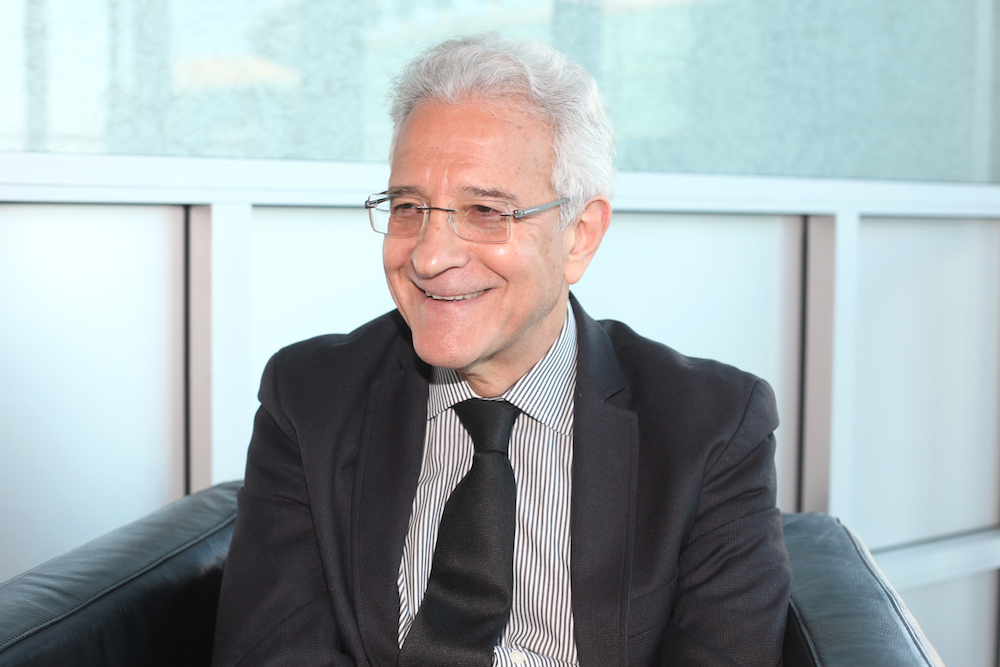
Photo by Aaron Salcido.
Omer Bartov is a professor of European history and German studies at Brown University as well as the winner of the 2019 Zócalo Public Square Book Prize for Anatomy of a Genocide: The Life and Death of a Town Called Buczacz. He traveled to Los Angeles from Israel, where he was born and raised and currently lives, to deliver the Zócalo Book Prize Lecture, “How Does Community Conflict Turn Into Genocide?” Beforehand, he visited the Zócalo green room to muse on Hebrew, his next book, and how to make great shakshuka.
Where do you go to be alone?
I’ve been living in Tel Aviv for a bit—so I go for walks along the beach at sunset, and that’s the best way for me to reorient myself.
What Hebrew word do you wish had an English equivalent?
There’s a famous word in Hebrew, davka or dafka. It’s impossible to translate. You say, “don’t you like coffee?” And you say davka, meaning, “Yes I do.” So it is a strange word. French has it as si rather than oui—the answer to a negative question. German has doch.
What’s the last movie you saw in a theater?
It’s been a while since I saw a movie in a theater, it’s true. I think it was Inglourious Basterds. It’s been a while. I see a lot of movies but on TV, not in the theater.
What’s your favorite childhood memory?
I have a very early memory, when I was really young, of running on the grass—it couldn’t have been a lot of grass because it was in Israel—and chasing water sprinklers, playing with water sprinklers, and I was trying to get wet and avoid them at the same time.
If you could have dinner with a historical figure, living or dead, who would you choose?
I don’t know why I thought that, but Marcello Mastroianni, one of my favorite actors. I never met him. Extremely attractive, a funny and imposing man. But he’s dead.
What book are you most likely to recommend to a friend or acquaintance?
For a while I’d been recommending a wonderful book, The Hare with Amber Eyes. It’s written by Edmund de Waal, and it’s written like a work of art. There’s nothing extra in it. It’s all perfectly placed.
What’s the most effective way to tell people how to pronounce “Buczacz”?
Simply spell it Buchach instead of with cz, and then it becomes Boo-chach. There’s a battle over spellings in Eastern Europe.
What’s your worst habit?
Maybe doing too much of what I do. Not taking enough breaks from it.
What’s your signature dish in the kitchen?
I make shakshuka really well. It needs a lot of cumin. And you have to use fresh tomatoes, not only tomatoes from the can. And I use hot peppers.
What do you like best about teaching?
First of all, when you teach, you’re always working with young people, so while you age, the population of students remains always young. Secondly, you have to articulate things that you are thinking about and explain them. Thirdly, there is a saying in the Talmud: You learn things when you teach people and you speak to them; they make you think in ways you haven’t thought before. It’s the interaction in a kind of Socratic way of teaching. So I like seminars much more than lectures.
What’s your next book about?
I call it a personal political history, and it’s about the relationship of my own generation to Israel, being the first generation born in the state after it was established, and how we came to understand where we came from and what we’ve been brought into.



